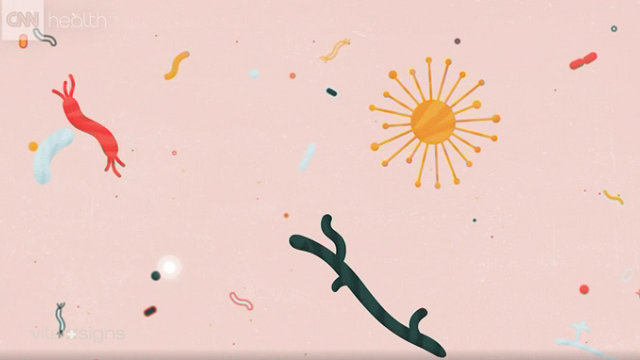
1. CNN: Household disinfectants could be making kids overweight, study says
A study led by University of Alberta pediatrics professor Anita Kozyrskyj shows that changes to gut bacteria come with regular use of disinfectants.
2. Global News: Lack of sunlight might lead to winter weight gain: Alberta study
While it might be tempting to stay indoors during the cold winter months, a new study out of the U of A suggests doing so might lead to weight gain. Peter Light, professor of pharmacology at the U of A and the director of the Alberta Diabetes Institute, is interviewed on the findings.
3. CBC News: Research lacking on medical marijuana, new prescription guideline suggests
A new guideline for medical marijuana, developed by Edmonton researchers and led by Mike Allan, director of Evidence Based Medicine at the U of A's Department of Family Medicine, warns family doctors that the risks may outweigh the benefits for the vast majority of patients.
4. The New York Times: C-Sections and Gut Bacteria May Contribute to Overweight Kids
Overweight women are more likely to have children who are obese by three years of age―and bacteria in the gut may be partially to blame, according to a study led by Anita Kozyrskyj, a U of A professor of pediatrics.
5. The Atlantic: A Controversial Virus Study Reveals a Critical Flaw in How Science Is Done
After a team of U of A medical microbiology and immunology researchers, led by David Evans and Ryan Noyce, synthesized horsepox, some critics argue that it's too easy for scientists to make decisions of global consequence.
A study by Carmen Young, assistant clinical professor of obstetrics and gynecology at the U of A, found that although the number of women with a previous cesarean delivery increased from 2003 to 2014, rates of attempted vaginal birth after cesarean section and rates of success after a trial of labour were essentially unchanged.
7. The New York Times: Do You Have the Right Stuff to Be a Stool Donor?
The potential for expanding the therapeutic applications of fecal transplants sent Canadian researchers, including Karen Wong, an assistant clinical professor of medicine with the U of A's Division of Gastroenterology, on a quest to pinpoint what precisely motivates stool donors and how they might recruit more volunteers.They recently presented their work in Washington at Digestive Disease Week.
8. The World News: 'I have tried to end my life': Hernia mesh patients overwhelmed by pain
Several women who have had hernias repaired with plastic surgical mesh say the subsequent pain they have endured has driven them to contemplate-and sometimes even attempt-suicide. Doctors, they add, have offered little in terms of solutions. Jan Willem Cohen Tervaert, a U of A professor of medicine in the Division of Rheumatology, is interviewed about his research on this issue.
9. The Globe and Mail: Mental-health problems hit hard at survivors of Fort McMurray fire
Newly published research from Vincent Agyapong, a U of A psychiatrist and Neuroscience and Mental Health Institute member, suggests the fire cast a lasting shadow over the lives of many residents who are still experiencing elevated rates of depression and related mental-health problems.
10. CBC National: Scientists recreate sense of feeling for amputees
Researchers at the University of Alberta and the University of New Brunswick were co-authors of a study led by Ohio's Cleveland Clinic, which found that strategically placed vibrating "robots" made study participants "feel" the movements of their prosthetic hands. Jacqueline Hebert, rehabilitation physician at Edmonton's Glenrose Rehabilitation Hospital and director of the U of A's Bionic Limbs for Improved Natural Control (BLINC) Lab, is part of the international team.